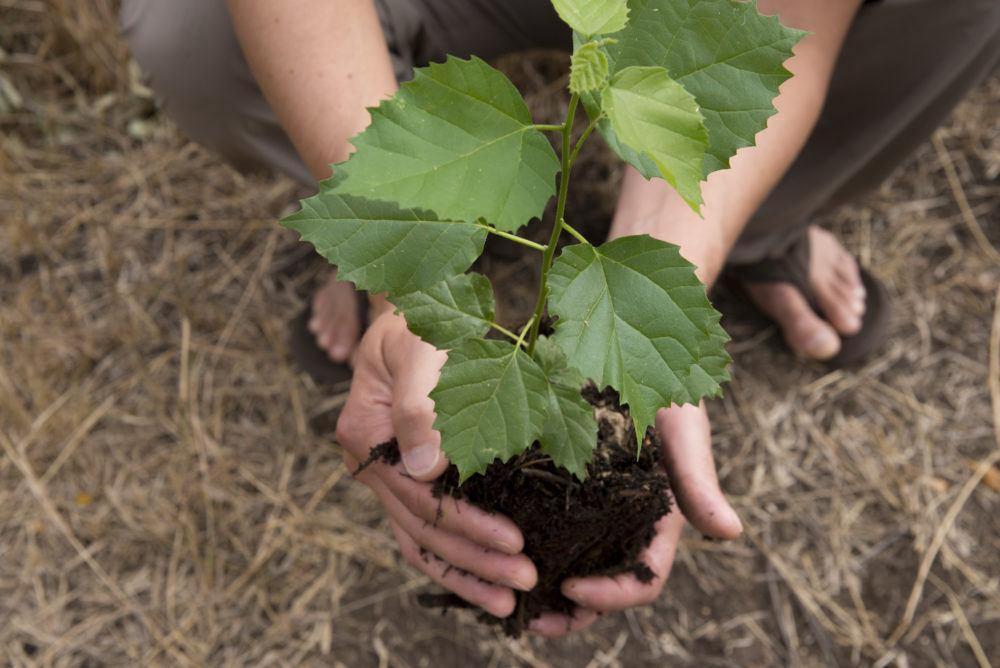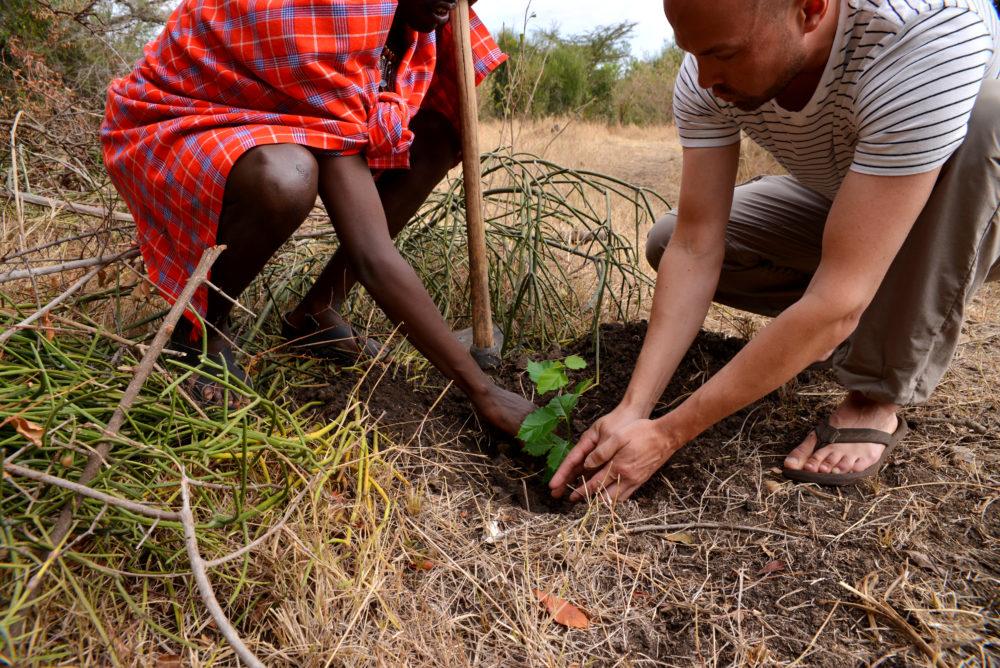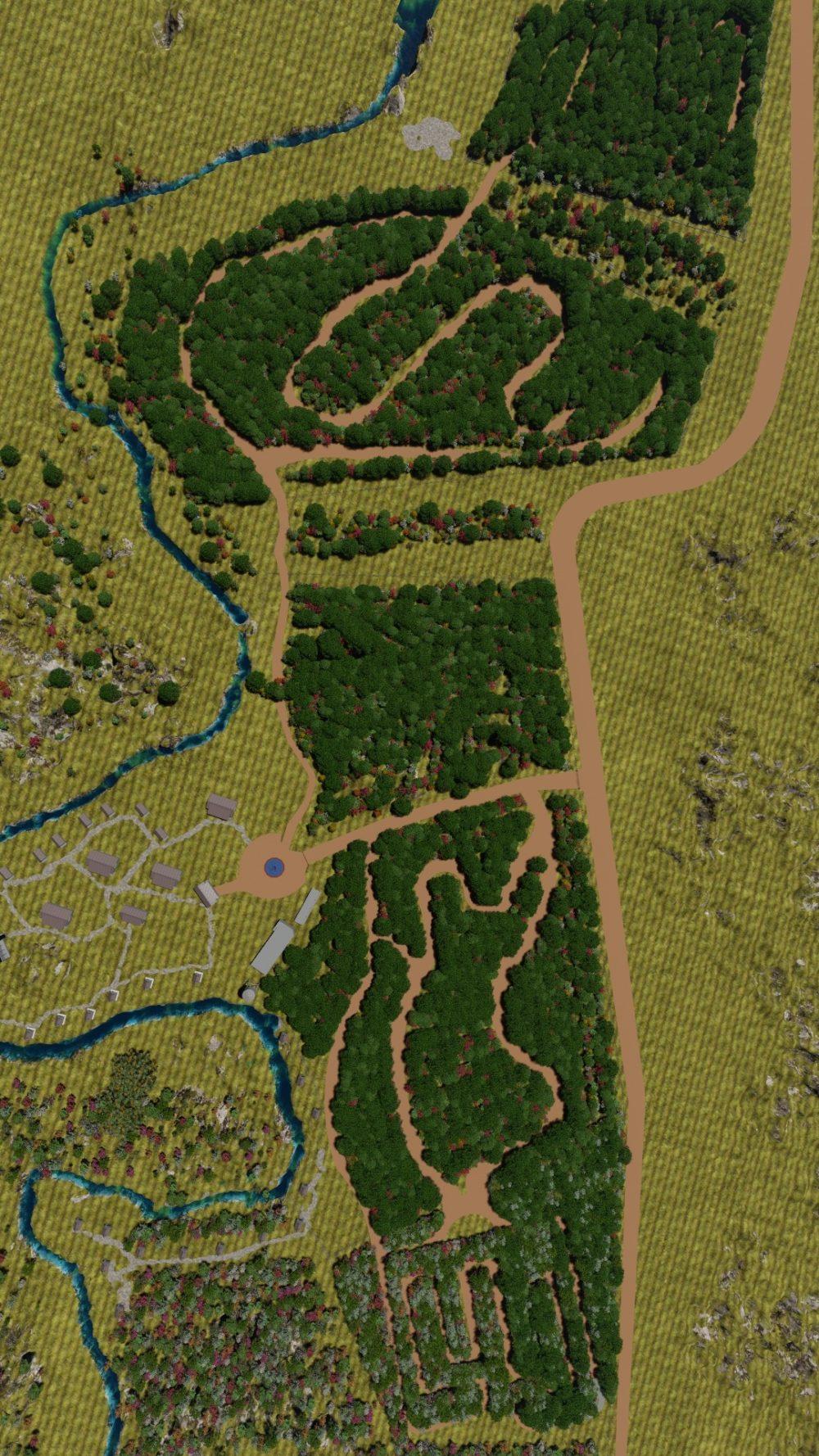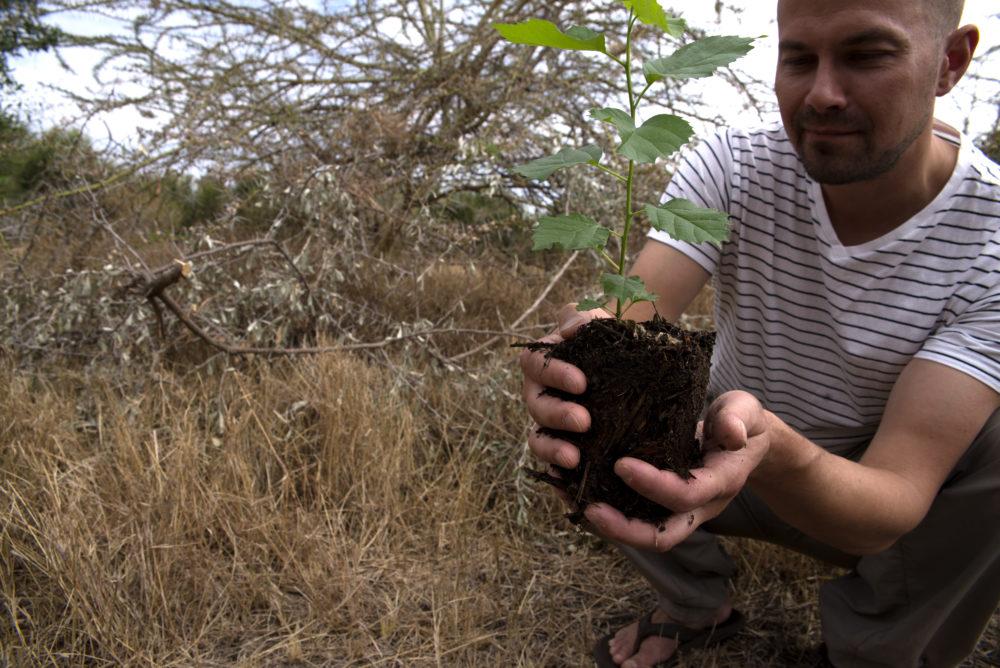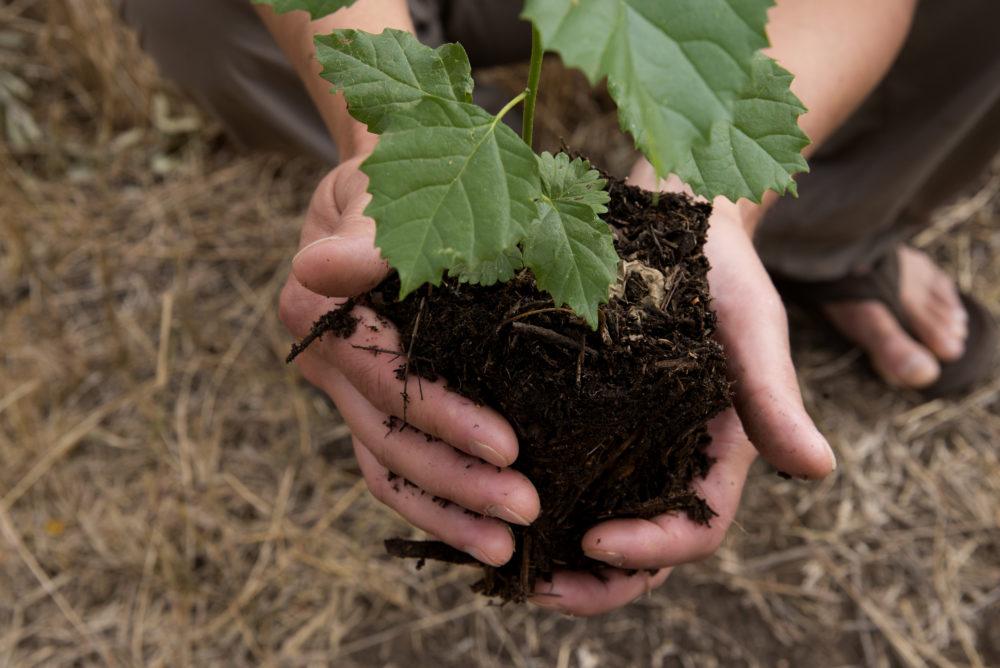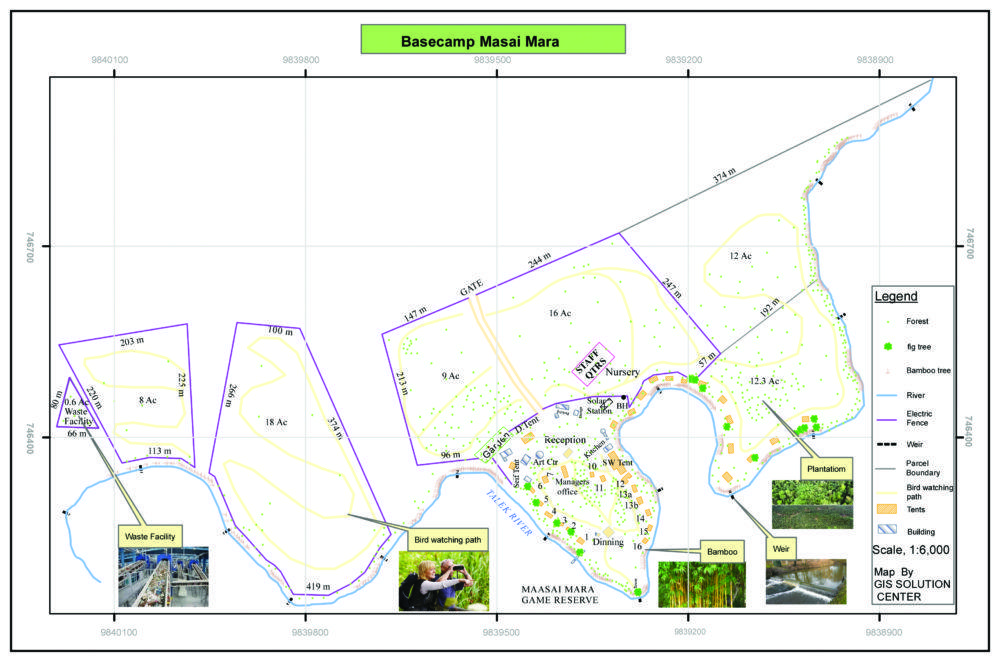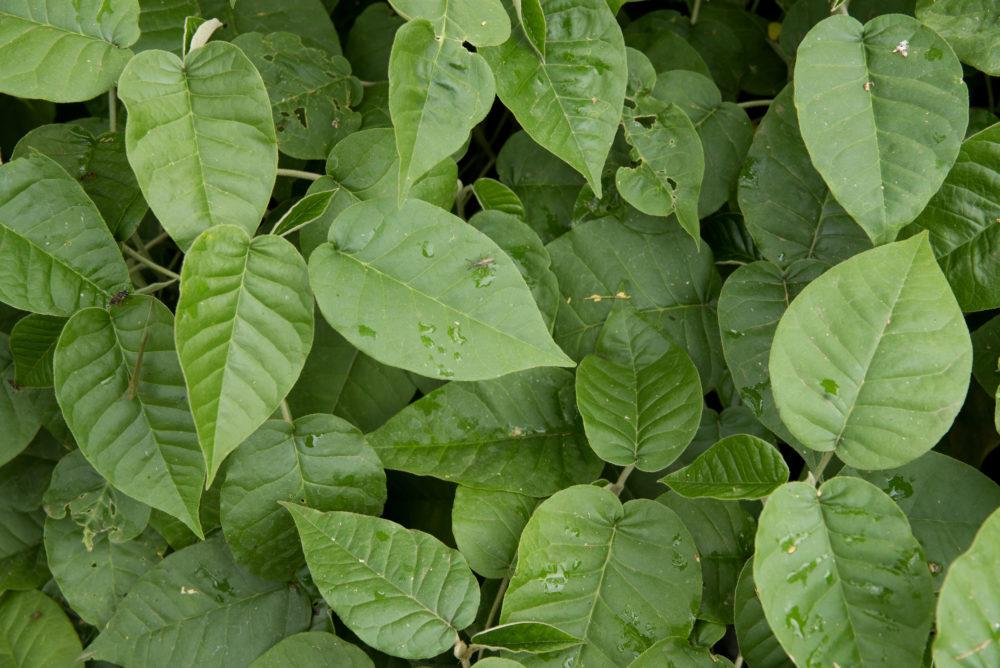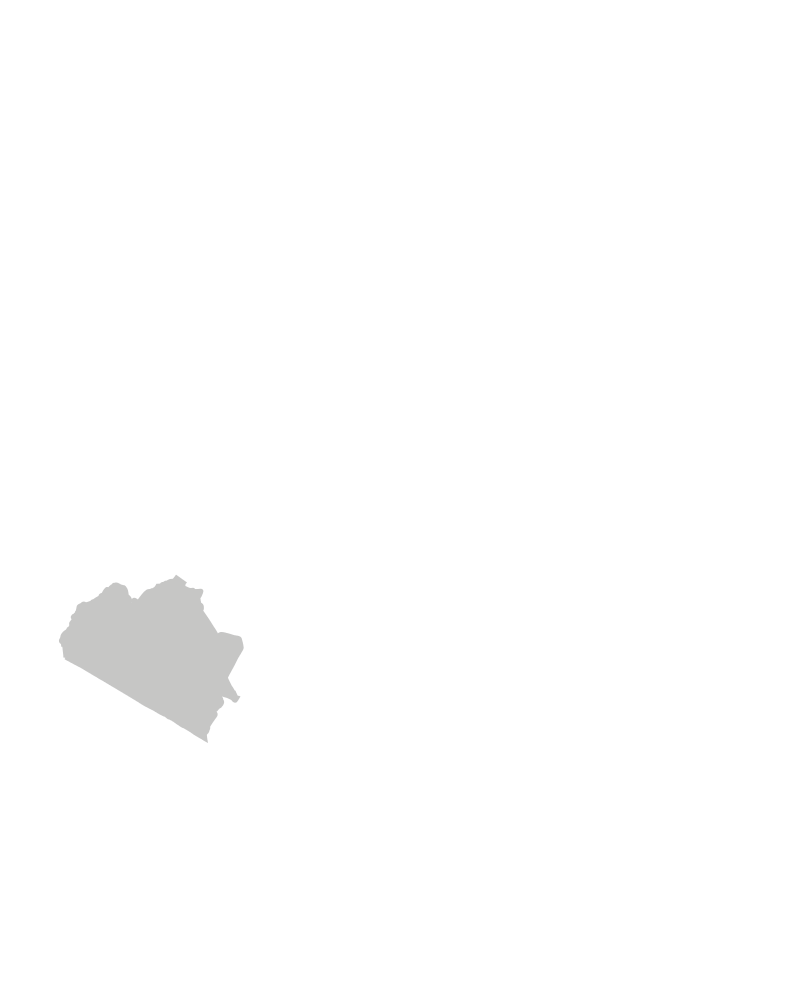
restore the biodiversity of one of the most important habitats left in the world
Basecamp Explorer aims to implement tourism operations in a responsible way by creating a lasting, positive impact in the regions where we are active. One of them is the wider Maasai Mara ecosystem, nowadays facing unprecedented environmental challenges. We have taken action to restore the biodiversity of one of the most important habitats left in the world and empower the community to become resilient towards the negative effects of climate change. Our efforts not only contribute to preserving the wildlife but to revive the original balance of the Maasai Mara ecosystem.
Rewild the Mara
In the Maasai Mara ecosystem, one third comprises the Mara National Reserve. However, most of Kenya´s wildlife lives outside the national parks. In the 1960s, the government started privatizing the remaining land with subdivisions into group and individual ranches. With reduced habitat for the wildlife, more frequent droughts and an increasing Maasai population, the human-wildlife conflict has escalated to a point that has been leading many local landowners to either sell their land to large agricultural companies or fence their plots to secure grazing fields and protect their cattle. Either of the alternatives has resulted in further loss of natural habitat through overgrazed land and barriers to the free, season-related movements of the wildlife (Great Migration) and the traditional Maasai pastoralists alike, threatening not only the survival of the wildlife and the Maasai culture, but the existence of one of the most important habitats left in the world.
The Basecamp Maasai Mara (BCMM) campsite is located along the Talek River, bordering the Mara National Reserve on one side, Talek village and privately owned land on the other side. When the BCMM was established in 1998, the area was badly over-grazed and characterized by rampant sand harvesting posing a threat to the sustainability of the Talek River and groundwater resources for the local community.
To revive some of the natural habitats, in 1998 BCMM initiated a tree-planting project on 30 acres of the area surrounding the camp, resulting in an improved natural environment and encouraging a wealth of birdlife back to the vicinity. With more than 178´000 trees planted to date, the BCMM campsite has been transformed into a “micro-climate” area.
Aiming to revive the biodiversity and empower the local community in the region surrounding the BCMM, Basecamp Explorer Kenya partnered with the Talek community and leased 100 more acres of land, planning to expand the area to 300 acres in the future. The goal is to develop a sustainable conservation and reforestation plan consisting not only of a further tree-planting, but also including several community development programs, such as waste management, infrastructure for water access, and livestock programs.
Increased biodiversity: with more than 178,000 trees planted to date, BCMM has become a haven for over 300 bird species and 80 – even previously extinct – plant species that have been eradicated outside of this area.
CO2 offsetting: by the end of 2019 Basecamp Explorer Kenya will plant 250’000 more trees on 100 additional acres surrounding the BCMM campsite, offsetting approximately 100’000 tons (for a period of 20 years) of carbon emissions caused by its tourism operations
Community development: the sustainable reforestation project also covers critical community development initiatives, such as waste management or reliable access to water, mitigating the human-wildlife conflict especially during dry seasons; furthermore, people benefit from increased access to medicinal plants and firewood
Capacity building and empowerment of people: Basecamp Explorer Kenya will train and employ local Maasai to set-up and run the seedling nursery, plant the trees, and implement the associated community development projects
Scalable model: the reforestation project serves as a showcase area of “resilience against drought”; the reforestation area can be used as a grass bank for the partner families who have leased their land for the project.
Status 2018
The Basecamp reforestation area has grown by an additional 25,000 trees in the first half of 2018 with an additional 15,000 seedlings in the nursery awaiting transplanting. The target number of trees to be planted over the next few months is 100,000 trees. This initiative has generated a lot of interest in the community. Over the first 6 months of 2018, about 6 schools both primary and secondary visited the nature project to learn about the importance of conservation and reforestation. In addition to the students who went on to plant trees in their schools, the local Maasai community is also planting indigenous trees in their homesteads.
Status 2019
To date, we have planted over 178,000 trees, 38,000 of which were planted in the first half of 2019. We aim to plant 80,000 more trees by the end of December 2019. This initiative continues to inspire many people across the Maasai Mara region both young and old. We have managed to give a learning experience to students from 4 different schools who have visited the project within the year.
You can support our reforestation project in several ways. Plant your own tree in our reforestation area nearby Basecamp Masai Mara or donate to our reforestation project to cover upfront costs for critical infrastructures, such as setting up a seedling nursery and building a borehole for reliable water access, even during dry seasons.
